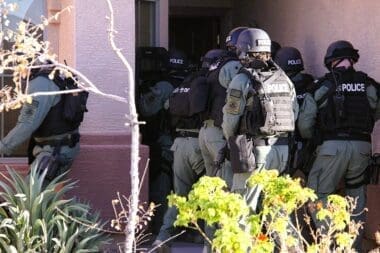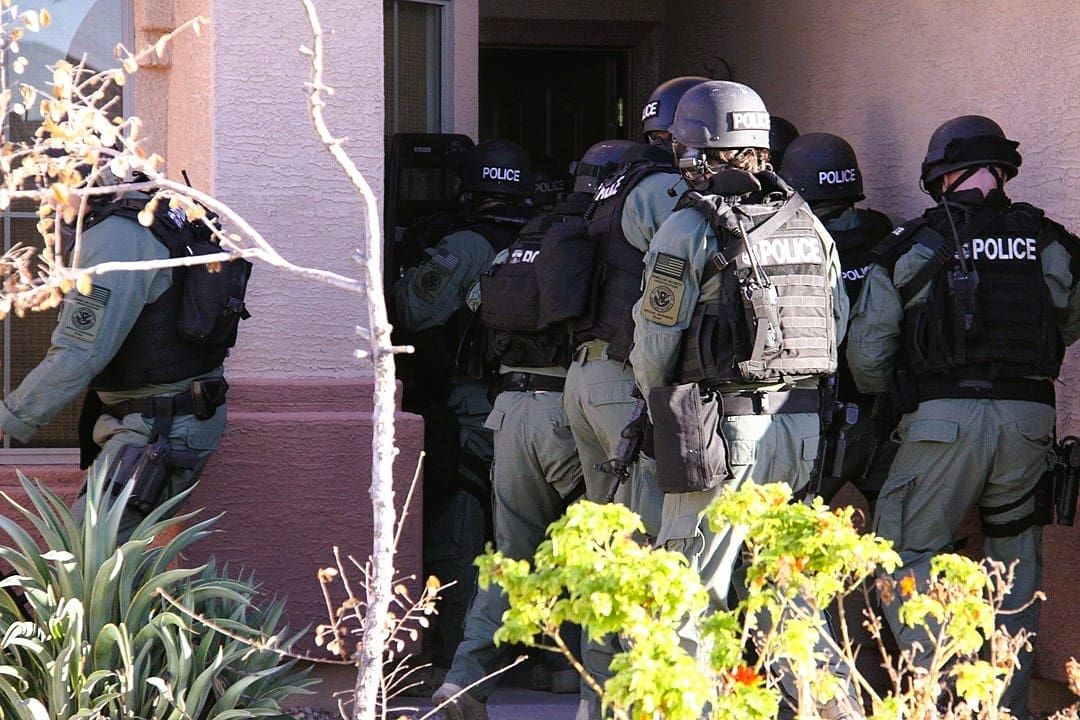In rural Louisiana, amidst the crawfish farms, towering pines, and cafes serving po’boys, approximately 7,000 individuals are detained in immigration centers, anxiously awaiting their fate on whether they will be deported from the United States. The administration of President Donald Trump aims to significantly expand this already massive immigration detention system, proposing an increase in the capacity to detain tens of thousands more immigrants nationwide.
The federal government’s push for large-scale deportations, as promised during Trump’s 2024 campaign, presents a potential boon for private prison companies and a challenge for government agencies tasked with the orderly removal of immigrants. Critics suggest the administration’s plans might include efforts to isolate detainees by conducting judicial proceedings far from their legal representatives and support systems.
Recently, ICE Acting Director Todd Lyons emphasized the need for the agency to approach the deportation system with a business mindset, likening it to a rapid delivery service. ICE has solicited proposals from companies to operate detention centers across the country, planning to expand from a current capacity of about 41,000 beds to nearly 100,000.
Although funding has yet to be fully secured, contracts are being awarded. The House narrowly approved a spending initiative that allocates $175 billion to enhance immigration law enforcement, a figure significantly exceeding ICE’s typical annual budget. With over 100 detention centers nationwide, ICE has taken steps to alleviate overcrowding, including awarding a $3.85 billion contract to Deployed Resources LLC to operate a detention camp at Fort Bliss, Texas.
The Geo Group Inc. received a contract for 1,000 beds in Newark, New Jersey, valued at $1 billion over 15 years, and another for 1,800 beds in Baldwin, Michigan. CoreCivic Inc. secured a contract to house 2,400 individuals, including families with children, in Dilley, Texas, for five years. The stock market has responded favorably, with Geo’s shares increasing by 94% since Trump’s election, and CoreCivic’s shares showing a 62% gain.
Louisiana, despite having a relatively small immigrant population and no border with Mexico, has become a significant location for immigration detention centers. As of 2019, ICE took control of five state prisons, ranking Louisiana second only to Texas for detention bed space. The state’s attraction lies in low labor costs, a politically supportive environment, and recently vacated jails due to criminal sentence reforms in 2017.
Louisiana’s conservative federal courts, particularly in the Western District and the 5th Circuit Court of Appeals, present challenges for detainees contesting detention conditions or appealing immigration court decisions. Detainees face isolation in the state’s nine rural detention centers, located hours away from urban areas housing most immigrant rights attorneys and advocacy groups.
Many detainees complain about “deplorable conditions” and the difficulty of remaining connected with family and lawyers, which can discourage them from challenging deportations. The expanded detention capacity could exacerbate these inhumane conditions, according to advocacy groups.
Most facilities are situated near Alexandria, where ICE converted a former military base into a short-term detention center with a deportation flight runway. In Jena, a detention center for 4,200 people operates under a contract with the Geo Group, surrounded by no-entry signs and armed guards.
Homero Lopez, an attorney providing free legal aid at Louisiana’s detention centers, notes that the remote location of these facilities complicates advocacy and protest efforts. While video hearings have mitigated some criticisms, Lopez argues that remote proceedings can be dehumanizing and prefers in-person appearances for more critical hearings.











